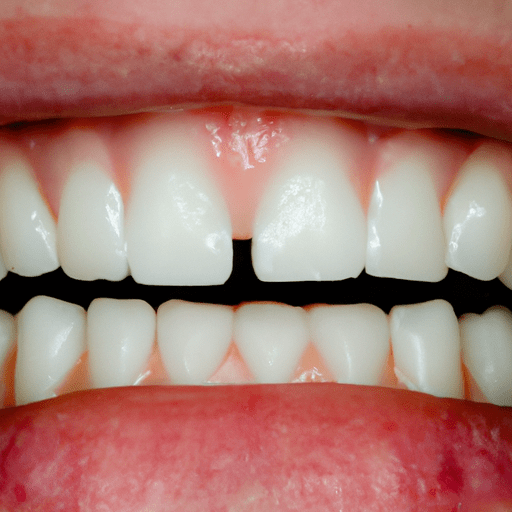Imagine waking up feeling refreshed and energized, ready to take on the day ahead. What if I told you there was a simple secret to achieving this blissful state? It’s called “sleeping like a top,” and it holds the key to a restful and rejuvenating night’s sleep. In this article, we will explore the art of sleeping like a top, uncovering tips and techniques to ensure you wake up feeling rested and revitalized. So, get ready to bid farewell to restless nights and say hello to sweet dreams.
Understanding Sleep Patterns
Basic sleep cycle phases
Understanding your sleep patterns is essential for achieving optimal sleep. The sleep cycle consists of four stages: NREM (non-rapid eye movement) stages 1, 2, and 3, and REM (rapid eye movement) sleep. In stage 1, you are in a light sleep, easily awakened. Stage 2 is a deeper sleep, while stage 3, also known as slow-wave sleep, is the deepest stage where restoration occurs. REM sleep is where most dreams occur. Each cycle lasts about 90 minutes, with REM sleep increasing in duration throughout the night.
How various factors can disrupt sleep cycles
Several factors can disrupt your sleep cycles, leading to poor sleep quality. External factors such as noise, light, temperature, and an uncomfortable sleep environment can disturb your sleep. Internal factors like stress, anxiety, and certain medical conditions like insomnia or sleep apnea can also disrupt your sleep patterns. Additionally, lifestyle choices such as irregular sleep schedules, excessive caffeine intake, and the use of electronic devices before bed can interfere with your sleep.
Importance of maintaining regular sleep rhythms
Maintaining regular sleep rhythms is crucial for a good night’s sleep. Your body thrives on consistency and aligning your sleep patterns with your natural circadian rhythm helps regulate various physiological processes. When you stick to a consistent sleep schedule, your body learns when to release sleep hormones and prepares for restorative sleep, leading to better overall sleep quality. It’s important to prioritize a consistent sleep routine to support your body’s natural sleep-wake cycle.
Importance of Quality Sleep
Physical benefits of good sleep
Getting quality sleep offers numerous physical benefits. It enhances your immune system, reducing the risk of infections and illnesses. Quality sleep promotes healthy brain function, boosts concentration, and improves memory retention. It also contributes to maintaining optimal weight by regulating appetite hormones and reducing cravings for unhealthy foods. Additionally, quality sleep improves cardiovascular health, lowers blood pressure, and decreases the risk of chronic conditions such as heart disease and diabetes.
Mental benefits of good sleep
Quality sleep is equally vital for your mental well-being. A good night’s sleep enhances your mood and emotional stability, reducing the risk of mood disorders like depression and anxiety. It improves cognitive function, allowing you to think clearly, make better decisions, and be more productive during the day. Quality sleep also supports emotional regulation and helps manage stress more effectively, leading to improved mental resilience and overall mental health.
Dangers of sleep deprivation
Consistently depriving yourself of sufficient sleep can have detrimental effects on your health. Chronic sleep deprivation increases the risk of accidents, impairs cognitive function, and negatively impacts memory and attention. It weakens your immune system, making you more prone to infections and diseases. Sleep deprivation can also contribute to weight gain and obesity by disrupting hormone regulation, leading to increased appetite and cravings for unhealthy foods. Prolonged sleep deprivation can have severe consequences on your mental health, increasing the risk of mood disorders, cognitive decline, and an overall decreased quality of life.

Factors Contributing to Good Sleep
Environmental factors affecting sleep
Creating a sleep-friendly environment is crucial for good sleep. The temperature in your bedroom should be cool, around 60-67 degrees Fahrenheit, as cooler temperatures promote sleep. Avoid excessive noise or use earplugs to mask disruptive sounds. Ensure your bedroom is dark by using blackout curtains or an eye mask. Keep your bedroom clean, clutter-free, and well-ventilated. Consider investing in a comfortable mattress, pillows, and breathable bedding to enhance comfort and promote restful sleep.
Lifestyle choices and sleep quality
Your lifestyle choices play a significant role in determining the quality of your sleep. Establishing a consistent sleep schedule by going to bed and waking up at the same time every day helps regulate your internal body clock. Avoid consuming caffeine or stimulating substances close to bedtime, as they can interfere with falling asleep. Limit exposure to electronic devices before bed, as the blue light emitted can disrupt your sleep patterns. Engage in relaxation techniques such as reading, meditating, or taking a warm bath to unwind before sleep.
Role of diet in sleep cycle
Your diet can impact your sleep cycle. Avoid heavy meals close to bedtime, as digestion can interfere with falling asleep. Instead, opt for light snacks that contain tryptophan, an amino acid that helps promote sleep. Foods rich in tryptophan include turkey, chicken, fish, nuts, seeds, bananas, and dairy products. Stay hydrated throughout the day but avoid excessive fluid intake before bed to minimize nighttime awakenings for bathroom trips. Adopting a balanced diet with a focus on whole foods can contribute to better sleep quality.
Optimizing Your Sleep Environment
Bedroom temperature and sleep quality
The temperature of your bedroom significantly affects sleep quality. Keeping your bedroom cool promotes better sleep, as a drop in body temperature initiates the sleep process. Aim for a temperature between 60-67 degrees Fahrenheit for optimal sleep. Experiment with different bedding materials and adjust the number of blankets or layers to find the perfect combination that keeps you comfortably cool or warm throughout the night. Consider using a fan or air conditioner to regulate the temperature in your bedroom.
Role of light and darkness in sleep
Light exposure has a profound impact on your sleep-wake cycle. Excessive exposure to bright light, particularly the blue light emitted by electronic devices, can suppress the release of melatonin, a hormone that regulates sleep. To promote quality sleep, limit light exposure in the evening by dimming lights, using warm-toned bulbs, and avoiding electronic devices at least an hour before bed. Keeping your bedroom dark with blackout curtains or an eye mask can prevent external light from disrupting your sleep.
Importance of a comfortable bed and pillow
Investing in a comfortable bed and pillow is essential for achieving quality sleep. Your mattress should provide adequate support and alleviate pressure points, ensuring proper spinal alignment. Choose a firmness level that suits your preferred sleep position and personal comfort. Your pillow should support your head and neck, maintaining a neutral alignment. Consider experimenting with different pillow materials and thickness options to find the one that best suits your needs. Regularly replace old or worn-out bedding to ensure a hygienic and comfortable sleep environment.

Sleep-promoting Lifestyle Habits
Maintaining a regular sleep schedule
Maintaining a regular sleep schedule is key to promoting healthy sleep. Try to go to bed and wake up at the same time every day, even on weekends. Consistency reinforces your body’s internal clock and supports the natural sleep-wake cycle. If you need to adjust your sleep schedule, do so gradually by shifting bedtime and waking time in small increments over several days. Avoid taking long naps or napping late in the afternoon, as they can interfere with your ability to fall asleep at night.
Effect of exercise on sleep
Regular exercise can have a positive impact on your sleep. Engaging in physical activity during the day helps decrease the time it takes to fall asleep and improves sleep quality. Aim for at least 30 minutes of moderate-intensity exercise most days of the week. However, avoid exercising too close to bedtime, as the increase in body temperature and adrenaline can make it difficult to relax and fall asleep. Ideally, complete your workout at least a few hours before bedtime to allow your body to wind down.
Adopting a sleep-friendly diet
Your diet can influence your sleep quality. Avoid heavy, greasy, or spicy foods close to bedtime, as they can lead to discomfort and indigestion, making it harder to fall asleep. Instead, opt for lighter meals that include complex carbohydrates, lean proteins, and plenty of vegetables. Such foods promote the production of serotonin and melatonin, neurotransmitters that aid in sleep regulation. Avoid excessive caffeine, alcohol, and nicotine intake, as they can disrupt your sleep patterns. Opt for herbal teas or warm milk as comforting alternatives before bed.
Understanding and managing sleep disorders
Common sleep disorders
Sleep disorders can significantly impact your sleep quality and overall well-being. Some common sleep disorders include insomnia, sleep apnea, restless legs syndrome, and narcolepsy. Insomnia is characterized by difficulty falling or staying asleep. Sleep apnea involves interrupted breathing during sleep, leading to repeated awakenings. Restless legs syndrome causes a strong urge to move the legs, often resulting in difficulty falling asleep. Narcolepsy is a neurological disorder that causes excessive daytime sleepiness and sudden sleep attacks.
Diagnosis and treatment options
If you suspect you have a sleep disorder, it’s important to consult a healthcare professional for diagnosis and appropriate treatment. Diagnosis often involves a sleep study conducted at a sleep center, where your sleep patterns and physiological functions are monitored throughout the night. Treatment options for sleep disorders vary depending on the specific condition but may include lifestyle changes, medication, continuous positive airway pressure (CPAP) therapy for sleep apnea, or cognitive-behavioral therapy for insomnia. Your healthcare provider will determine the most suitable treatment plan for you.
When to seek professional help
If you consistently experience difficulties falling asleep, staying asleep, or waking up feeling unrefreshed, it may be time to seek professional help. Additionally, if you snore loudly, gasp for air during sleep, or have episodes of excessive daytime sleepiness, it’s important to consult a healthcare professional. They can evaluate your symptoms, potentially diagnose any underlying sleep disorders, and provide appropriate guidance and treatment options. Remember, addressing sleep problems can significantly improve your overall quality of life.

The Role of Napping
Health benefits of napping
Napping can offer various health benefits when done correctly. A short nap of 10-20 minutes can provide an energy boost, improve mood, and enhance alertness. Napping has been found to enhance cognitive function, memory, and creativity. It can also help reduce the effects of sleep deprivation and boost overall performance. Moreover, napping has been associated with a lower risk of heart disease and improved cardiovascular health.
Ideal nap length and timing
The length and timing of your nap play a crucial role in maximizing its benefits. A short power nap of 10-20 minutes is ideal for recharging and boosting alertness without interfering with nighttime sleep. If you feel groggy after waking from a nap, you may have slept too long. Avoid napping too close to your bedtime, as it can disrupt your ability to fall asleep at night. Aim to schedule naps earlier in the day and make sure they are shorter, allowing enough time to feel refreshed before resuming your daily activities.
Avoiding nap dependency
While napping can be beneficial, it’s essential to avoid becoming dependent on it. Regularly relying on long or frequent naps can disrupt your natural sleep-wake cycle and make it harder to fall asleep at night. If you find yourself consistently needing naps to get through the day, it may indicate an underlying sleep issue or inadequate nighttime sleep. It’s important to prioritize and optimize your nighttime sleep to minimize the need for napping and ensure you maintain a healthy sleep schedule.
Technology and Sleep
Impact of electronics on sleep
The use of electronic devices, particularly before bed, can significantly impact your sleep quality. The blue light emitted by smartphones, tablets, and computers suppresses the production of melatonin, disrupting your natural sleep-wake cycle. Additionally, the stimulation and engagement associated with electronic device usage can make it harder for your brain to relax and transition into sleep mode. It’s crucial to limit electronic device usage, especially in the hours leading up to bedtime, to promote better sleep.
Use of sleep monitoring apps and gadgets
Sleep monitoring apps and gadgets can be helpful tools in understanding your sleep patterns and identifying areas for improvement. These tools typically track your sleep duration, quality, and provide insights into factors affecting your sleep. They can help you identify patterns, such as frequent awakenings or restless sleep, and offer suggestions for optimizing your sleep environment and habits. However, it’s important to use these apps as a complementary tool and not solely rely on them for diagnosing or treating sleep disorders.
Using technology to promote better sleep
While excessive use of technology can disrupt sleep, certain technologies can also play a positive role in promoting better sleep. White noise machines or apps can mask disruptive sounds and create a soothing sleep environment. Smart lighting systems can simulate sunrise or sunset, helping regulate your body’s internal clock. Sleep meditation apps or guided relaxation podcasts can aid in relaxation and help prepare your mind for sleep. Ultimately, utilizing technology mindfully and in a way that supports your sleep goals can contribute to better sleep quality.
The Role of Stress and Mental Health in Sleep
How stress impacts sleep
Stress can have a significant impact on your sleep. When you’re stressed, your body releases stress hormones like cortisol, which can make it difficult to relax and fall asleep. Stress can also increase the occurrence of racing thoughts and anxiety, further hindering sleep initiation. Over time, chronic stress can disrupt your sleep patterns, leading to insomnia and poor sleep quality. It’s important to address stress effectively and develop healthy coping mechanisms to prevent its negative impact on sleep.
Managing stress for better sleep
Implementing stress management techniques can greatly improve your sleep. Regular exercise, such as yoga or moderate-intensity workouts, can help reduce stress levels and promote relaxation. Engaging in relaxation practices like deep breathing exercises or meditation before bed can calm your mind and prepare it for sleep. Prioritizing self-care activities like reading, taking baths, or pursuing hobbies can also alleviate stress and promote a more balanced mental state. Seeking support from loved ones or a professional therapist can provide further guidance in managing stress effectively.
Sleep problems associated with mental health conditions
Mental health conditions can often be intertwined with sleep problems. Conditions such as anxiety, depression, and post-traumatic stress disorder (PTSD) can disrupt sleep architecture and lead to difficulties falling asleep, staying asleep, or experiencing refreshing sleep. Conversely, sleep disturbances can also contribute to the onset or exacerbation of mental health symptoms. If you suspect your mental health is impacting your sleep, it’s crucial to seek professional help. A comprehensive approach that addresses both mental health and sleep can greatly improve your well-being.
Solutions to Common Sleep Problems
Dealing with insomnia
Insomnia, characterized by difficulty falling asleep or staying asleep, can significantly impact your overall sleep quality. To cope with insomnia, establish a consistent sleep schedule, avoiding naps and stimulating activities close to bedtime. Create a relaxing bedtime routine, practicing relaxation techniques like deep breathing or meditation. Ensure your sleep environment is conducive to sleep, with a comfortable mattress, pillows, and a dark and quiet atmosphere. If necessary, consult a healthcare professional who can provide further guidance and recommend cognitive-behavioral therapy for insomnia (CBT-I) or other treatment options.
Coping with sleep apnea
Sleep apnea is a sleep disorder characterized by interrupted breathing during sleep. If you suspect you have sleep apnea, it’s important to seek medical evaluation for accurate diagnosis and treatment options. Continuous positive airway pressure (CPAP) therapy is a common treatment method that involves wearing a mask during sleep to deliver pressurized air, keeping the airway open. Other treatments may include lifestyle changes like weight loss or positional therapy. Your healthcare provider will determine the best approach based on your specific condition.
Addressing restless legs syndrome
Restless legs syndrome (RLS) causes an irresistible urge to move the legs, often accompanied by uncomfortable sensations. Managing RLS involves implementing lifestyle changes such as regular exercise, avoiding stimulants like caffeine or nicotine, and practicing relaxation techniques before bed. Warm baths or massages can also help alleviate symptoms. In some cases, medication may be prescribed to manage RLS symptoms. Consult with a healthcare professional to discuss your symptoms and determine the most appropriate treatment plan for you.
In conclusion, understanding sleep patterns and prioritizing quality sleep is crucial for your overall health and well-being. By considering factors such as your sleep environment, lifestyle choices, and stress management, you can optimize your sleep habits and promote restorative sleep. Addressing common sleep problems and seeking professional help when necessary can lead to significant improvements in your sleep quality and overall quality of life. Remember, a good night’s sleep is within reach, so embrace healthy sleep habits and enjoy the benefits of sweet dreams!





